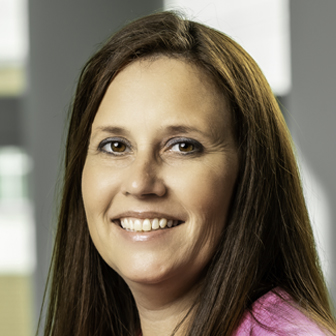What Genetic Counseling Can Tell You About Your Risk For Breast Cancer

Answer a few questions and we'll provide you with a list of primary care providers that best fit your needs.
If your family has a history of breast cancer, you may be at an increased risk of having it yourself. The degree of your risk, though, can vary depending on factors like the age when your relatives were diagnosed, the closeness of your relation to them, and the number of your relatives who’ve had breast cancer.
And in some cases – relatively few – women with a family history of breast cancer inherit changes, or mutations, in genes that increase breast cancer risk. Changes in the BRCA1 and BRCA2 genes, which normally suppress breast cancer, can greatly increase risk of breast, ovarian, pancreatic, and other cancers. (Mutations are linked to about five to 10 percent of breast cancers.) In addition to the BRCA1 and BRCA2 genes, other genes have been discovered that increase the risk of breast cancer, as well.
If you’re concerned about your family’s breast cancer history and what it may mean for your health, Julie Sawyer, MS, CGC, a Premier Health genetic counselor, suggests that you talk with your health care provider. “You may find it helpful to examine your family history with a specialist’s help.”
She adds that your doctor may recommend that you meet with a certified genetic counselor, who will review the details of your family history with you and help calculate your risk.
This is one of the services offered by Premier Health’s newly launched Cancer Prevention Program, says Emily Townsend, MSN, RN, OCN, Premier Health oncology program manager.
The Cancer Prevention Program is available to patients of select Premier Physician Network primary care and gynecology offices. “Patients start out by completing a screening questionnaire that will help determine their breast cancer risk due to family history or genetics,” Townsend says.
Depending on questionnaire results, you could be referred to a genetic counselor, and for genetic testing, if your family history indicates you’re potentially at risk for genetic mutations that put you at higher risk for breast or other cancers.
“After talking with a genetic counselor, you can reach a better understanding of how much your family history can impact you, what your risks for cancer really are, and your choices for managing them. You might even be relieved to discover that your family history is not as serious a problem as you thought,” Sawyer says.
On the other hand, if your doctor recommends genetic testing, she says, “it deserves your thought and careful consideration. You should discuss with your doctor or genetic counselor the benefits and limitations of genetic testing and what it can tell you and what it can’t. It’s very specialized. It’s not a routine test.”
She adds that insurance often covers genetic testing, if you’ve been identified as having a defined level of risk. Your genetic counselor or specialist can work with you to help determine insurance coverage and to find affordable options for genetic testing.
Genetic counseling and testing can help you and your doctor develop a personalized strategy to manage your cancer risks, for instance, through lifestyle changes, earlier or more frequent cancer screenings, medications, and surgery.
Family History That Can Raise Risk
Your chances of having breast cancer can increase when one or more of your blood relatives has had breast or ovarian cancer.
Your risk rises with these factors:
- The closer your relation. First-degree relatives (siblings, parents, and children) pose the greatest risk, followed by second-degree relatives (nieces, nephews, aunts, uncles, and grandparents), and third-degree relatives (first cousins, great-grandparents, and great aunts and uncles).
- The more relatives who have had breast or ovarian cancer
- The younger your relatives were when diagnosed. Risk rises with diagnosis before age 50.
- Both breast and ovarian (or pancreatic) cancer run in your family.
- You have a father or brother who had breast cancer.
- You have an Ashkenazi Jewish heritage (ancestors who came from Eastern Europe).
Answer a few questions and we'll provide you with a list of primary care providers that best fit your needs.
Source: Julie Sawyer, MS, CGC, Premier Health genetic counselor; Emily Townsend, MSN, RN, OCN, Premier Health oncology program manager






